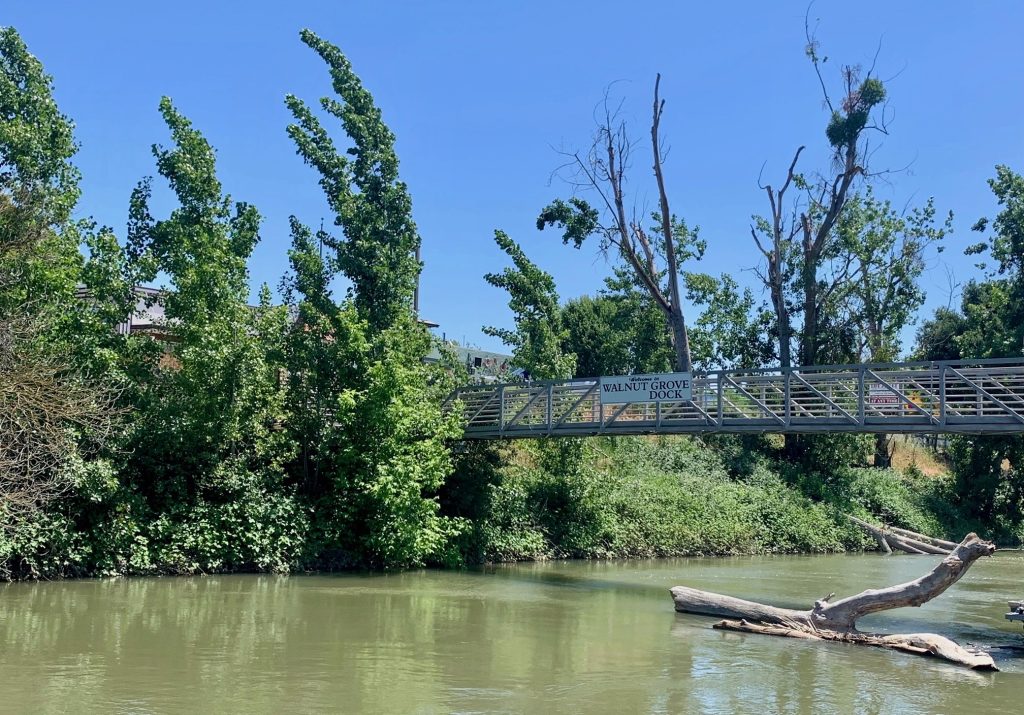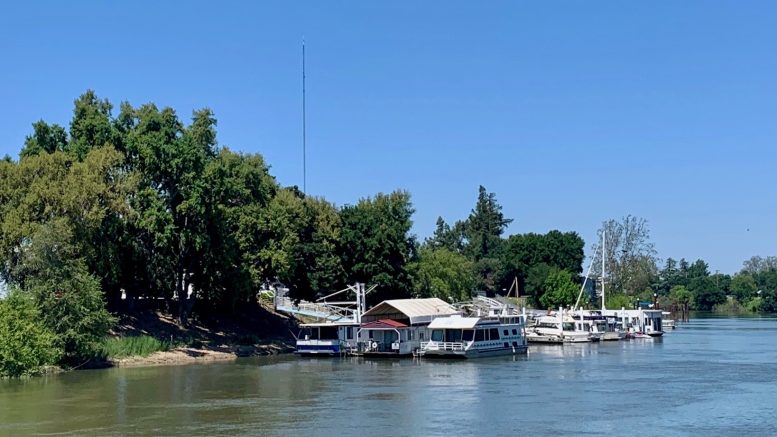By Dan Bacher
In a report sponsored by the California Water Impact Network, policy expert Max Gomberg revealed that the continued funding of the controversial Delta Tunnel – also known as the Delta Conveyance Project – could bankrupt the powerful Metropolitan Water District of Southern California. Gomberg is the former climate change and water conservation manager for the State Water Resources Control Board.
According to Gomberg, the embattled attempt to build a giant tunnel under the Sacramento-San Joaquin River Delta “threatens MWD’s fiscal solvency, promises dramatically higher ratepayer bills, and does nothing to secure long-term water security for the 19 million residents within the district’s service area.”
Gomberg discussed his report and fielded questions from reporters in a press conference on May 9.
His report is particularly timely, considering that California is expected to experience more “weather whiplash” ranging from extreme dry, to extreme wet hydrological conditions, in the coming years: Conditions similar the state has seen over the last three years, Gomberg noted.
He added that the Delta tunnel has been promoted as the “long-term solution” to MWD’s water woes, though he’s identified three foundational flaws to this line of reasoning: He characterizes them as “an exorbitant price tag, environmental restrictions on operations, and the impacts of climate change on deliveries.”
MWD has already spent around $240 million on planning for the tunnel project and its predecessor versions over the past couple of decades. Now it wants to move forward with an estimated $16 billion built-out.
“Though MWD has not published an estimate of its cost share and likely rate increases, it has produced a 10-year budget outlook and integrated resources plan (IRP); it has also embarked on a planning process designed to integrate likely climate change scenarios with both the budget and IRP,” Gomberg wrote in his executive summary. “These documents raise serious concerns about the DCP and MET’s participation in the scheme. The current IRP encompasses an analysis of climate change impacts on future water supplies – but the 10-year budget outlook focuses on sales projections, assuming both stable water demand and undiminished deliveries from the Colorado River Aqueduct.”
The former water manager goes on to point out that California’s share of the Colorado River supply is expected to sharply decrease.
MWD’s financial documents acknowledge this “possibility,” but its budget outlook assumes Colorado River water deliveries will somehow increase beginning in 2028.
“This is an impossible circle to square,” Gomberg observed.

The new reporter also emphasizes that water affordability is a pressing concern, especially for low-income households. “There are no state or federal water assistance programs to help low-income residents, and water agencies are prohibited from using ratepayer funds for low-income household assistance due to Proposition 218,” Gomberg noted. “Given that future rate increases for MWD are a virtual certainty, this points to a grim future.”
The state of California’s own documents suggest that, even under the best of circumstances, the Delta Tunnel will not deliver water before 2040.
“As water bill defaults increase and member agency purchases decrease, MWD (which relies on water sales to member agencies) will be forced to respond with ever-increasing rate increases, further driving down sales and permanently reducing MWD’s operating budget,” Gomberg concluded, calling the trend a “doom spiral” that will “prove catastrophic” for the district.
During his press conference, Gomberg also addressed a question about the Sites Reservoir that MWD — and the Gavin Newsom Administration — is supporting.
“California has already taken all the best reservoir locations and has also built reservoirs where they didn’t need to be,” he argued. “The proposed benefit, moving water more easily, completely whitewashes the environmental impacts. Sites is effectively a giveaway of public dollars.”
Adán Ortega Jr., chair of the Metropolitan Water District Board, discussed Gomberg’s findings with The LA Times in its recent article: “Report urges Metropolitan Water District to abandon Newsom’s $16-billion delta tunnel plan.” In it, Ortega agreed with some points raised in the report and acknowledged “they’re relevant to this discussion that we have to have.”
“I think we’ve spent way too much in the Delta in general,” Ortega said at one point in the Times interview. “Imagine what we could have built down here with [the money spent on Tunnel planning and litigation].It’s not doing the Delta any good, because it prevents the long-term planning that needs to take place there.”
The full report is available on the California Water Impact Network (C-WIN) web page.


Be the first to comment on "New report finds proposed Delta Tunnel could bankrupt Metropolitan Water District"